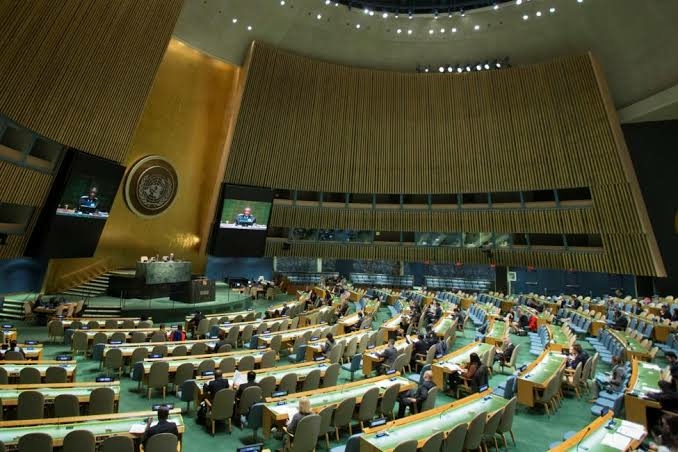Nigeria, at the ongoing first International Migration Review Forum (IMRF), has reiterated its commitment to implementing the Global Compact for Safe, Orderly and Regular Migration (GCM).
The UN correspondent of the News Agency of Nigeria (NAN) reports that the goal of the IMFR is to review the progress made at the local, national, regional and global levels in implementing the GCM.
GCM enumerates 23 objectives for state action, bolstered by specific commitments, that seek to address challenges related to today’s migration.
The quadrennial IMRF, hosted by the president of the UN General Assembly, at UN headquarters in New York, consisted of four interactive multi-stakeholder round tables, a policy dialogue, and a plenary.
Federal Commissioner, National Commission for Refugees, Migrants and Internally Displaced Persons (IDPs), Ms Imaan Suleiman-Ibrahim, said Nigeria was committed to implementing CGM through existing policies, processes and institutions.
Delivering Nigeria’s statement at IMRF Roundtable two, Suleiman-Ibrahim, said there was need for a commitment by all stakeholders to ensure that a right-based approach was deployed pre-departure and post-arrival of returnees.
“Members states must commit to improving partnership and cooperation in facilitating safe and dignified reintegration through the development of Memorandum of Understandings between host countries and country of origin.
“Likewise, we wish to urge international partners to sustain support to both host and origin countries to develop stronger structures and frameworks that enhance sustainable reintegration of returnees,” she said.
Speaking on implementing objective four of CGM, Suleiman-Ibrahim said Nigeria had embarked on the birth registration of children of migrants born in IDPs camps and host countries.
The commissioner said the effort had helped to reduce vulnerabilities and increase protection of migrant children to ensure they were included in national development plans and programmes.
She said regrading Nigeria’s implementation of Objective 21; namely, to ensure sustainable reintegration of returned migrants, the government of Nigeria had taken several steps.
“Nigeria has embarked on development of socio-economic activities programmes such as Trade Union Information on Return and Reintegration for Migrant Workers in Nigeria and Standard Operating Procedures (SOP) on Return, Readmission and Reintegration.
“The country has also established Reintegration Committees in seven states in Nigeria; Case Management Expert Team and signed bilateral agreement to ensure sustainable reintegration,” the commissioner said.
In carrying out these activities, Suleiman-Ibrahim said the country endured a few challenges and inadequate collaboration with some host countries, including insufficient or lack of information sharing and reluctance of some countries to enter into agreements with the Nigerian government.
“There is also the challenge of mismatch of data with regards to identifying nationalities of returnees for seamless readmission,” she said.
The IMRF, which started on Tuesday, ends on Friday.
IOM is the coordinator of the UN Network on migration, which ensures effective and coherent system-wide support for the implementation of the GCM and supports the organisation of the four-day IMRF.
Chaired by the president of the UN General Assembly, the Forum is a chance to consolidate collaborative action and recognise the invaluable contributions migrants make to societies.
It provides an opportunity to identify remaining challenges, and emerging migration issues requiring the attention of the international community.

















Discussion about this post